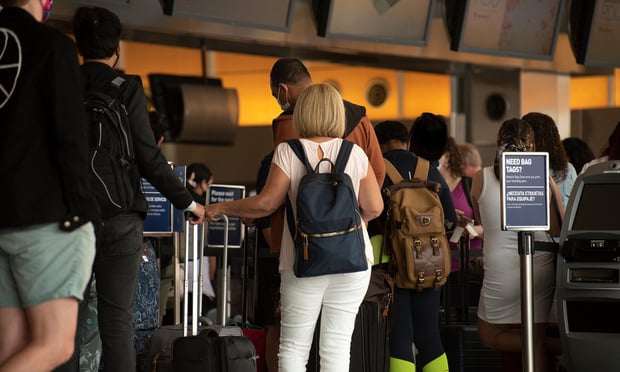(Bloomberg) -- The Germanwings pilot who investigators say crashed his plane into a French mountain in March repeatedly set the jet on collision course with the ground on a flight earlier that day in what may have been a dry run for his suicide bid.
Data from the morning flight shows Andreas Lubitz briefly set the Airbus Group NV A320 jet to descend to 100 feet on five occasions when his captain left the cockpit before returning it to cruise mode, France’s air-accident investigator said May 6.
“I can’t know what was in the pilot’s head,” BEA Director Remi Jouty said as he presented a preliminary report on the March 24 crash. “All we can do is say that, several times, he manipulated the button to put in a minimum value.”
The maneuvers on the flight from Dusseldorf to Barcelona were repeated hours later on the return journey when Lubitz sent the airliner into a fatal plunge after denying his senior colleague access to the flight deck following a toilet break. The impact with an Alpine slope shattered the jet into thousands of pieces, killing all 150 people on board.
Lubitz’s actions during the earlier flight were masked by inputs from on-board computers that prevent a plane from flying erratically. Setting it to descend to 100 feet would have triggered a subtle, gradual drop not noticed by the captain who had left the cockpit, each time quickly curtailed by Lubitz’s subsequent instructions to return to cruise.
Contact Attempts
Today’s BEA report provides a minute-by-minute analysis of the subsequent fatal journey taken by the A320 flown by the discount arm of Deutsche Lufthansa AG, Europe’s second-largest airline, which declined to comment on the findings.
The jet’s captain left the cockpit just as it reached cruising altitude, the study says. Once alone, Lubitz changed the selected altitude from 38,000 feet to 100 feet -- a height well below the level of the mountainous terrain in the area.
During a “continuous and controlled descent” spanning 10 minutes until the impact with the ground the Marseille control center sought to contact the Germanwings plane on 11 different occasions on three frequencies, but was ignored. The French military made three attempts to get through, and the flight crew of another aircraft also radioed the jet.
The A320 captain was outside the cockpit for more than four minutes before sounding the buzzer to request readmission, the report says. When Lubitz failed to open the door he sought four times to contact him using an intercom systems.
‘Violent Blows’
Noises consistent with someone knocking on the door were also recorded on six occasions, together with muffled voices and one audible request for it to be opened, after which five “noises similar to violent blows” can be heard one.
In the cockpit, the voice recorder revealed sounds of breathing until a few seconds before impact, while the data device reveals that Lubitz maneuvered the right joystick for about 30 seconds just 1 1/2 minutes before the collision, though not sufficiently to disengage the autopilot.
Since the accident, French and German prosecutors have said Lubitz was suffering from psychological problems that weren’t fully apparent to his employer because of privacy laws designed to encourage people to consult doctors without fear.
The BEA report highlights six other crashes that appear to have been caused by an “intentional maneuver” by crew. The incidents include the crash of an Embraer SA 190 regional jet operated by LAM Mozambique Airlines in Namibia in 2013 and another involving an EgyptAir Boeing Co. 767 in 1999.
Doors Conundrum
The BEA’s final submission, expected about a year from now, will also detail lessons to be learned from the crash and suggest changes that could help prevent similar tragedies.
That may include urging regulators to review rules imposed after the Sept. 11, 2001, attacks to stop cockpit doors from being opened from the outside, though the BEA said today any changes will inevitably require a “compromise” around the conflicting risks of pilot suicide and terrorist intervention.
The airline industry’s approach to mental health seems to be the most pressing issue after Germanwings, it said.
“We must examine in detail the system of evaluating pilots, and that involves many actors, including people in the pilot’s personal life, the role of doctors, and of all the authorities,” Jouty said.
--With assistance from Richard Weiss in Frankfurt.
Copyright 2018 Bloomberg. All rights reserved. This material may not be published, broadcast, rewritten, or redistributed.
Want to continue reading?
Become a Free PropertyCasualty360 Digital Reader
Your access to unlimited PropertyCasualty360 content isn’t changing.
Once you are an ALM digital member, you’ll receive:
- Breaking insurance news and analysis, on-site and via our newsletters and custom alerts
- Weekly Insurance Speak podcast featuring exclusive interviews with industry leaders
- Educational webcasts, white papers, and ebooks from industry thought leaders
- Critical converage of the employee benefits and financial advisory markets on our other ALM sites, BenefitsPRO and ThinkAdvisor
Already have an account? Sign In Now
© 2024 ALM Global, LLC, All Rights Reserved. Request academic re-use from www.copyright.com. All other uses, submit a request to [email protected]. For more information visit Asset & Logo Licensing.








